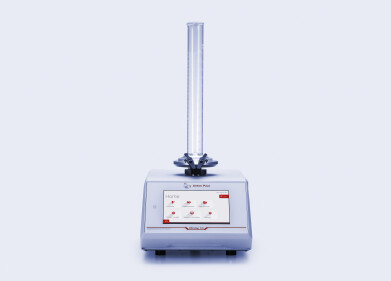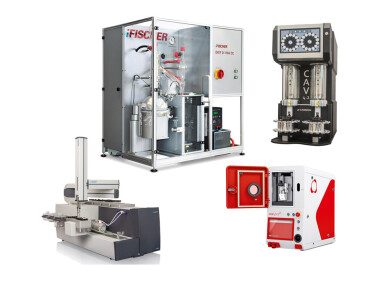Laboratory products
World’s First Reusable Biochip Architecture
Oct 22 2010
Fluidigm Corporation has announced it has developed the world’s first reusable bio-chip architecture for the commercial market. These reusable integrated fluidic circuits (IFCs) will dramatically lower SNP genotyping costs and are designed to support accelerated sample throughput, while maintaining data quality of 99.75% or greater accuracy and 99% or greater call rates.
Fluidigm initially invented this architecture to support a progressive new programme driven by the Agricultural Research Service (ARS), the chief scientific research agency of the United States Department of Agriculture (USDA). The programme’s goal is to drive high sample throughput genotyping down to a penny-per-data-point, which would enable widespread adoption of genetic analysis in vegetable and fruit seeds, livestock (cattle, pigs, sheep, poultry) and fishery management. This will significantly improve the quality and quantity of the food supply, while lowering production costs.
“The ongoing challenge has been that genotyping simply costs too much to run the large number of experiments required to find the genetic markers that matter. Then, once found, the cost is still too prohibitive to implement these genetic quality controls across the millions and millions of seeds, animals and fish that make up our food production system," explained Curt Van Tassell PhD, ARS Research Geneticist.
“To achieve a tipping point necessary to transform industry and scientists, we needed to decrease the costper-data-point down to a penny - all in (chemical reagents, consumables)," added Van Tassell. "If we could achieve that type of cost structure, it would allow us to determine parentage and traceability information for under a dollar per animal. This low price point would allow animal evaluations under conditions that were not feasible before - such as in sub-Saharan Africa. This technology could provide the information to improve animals for some of the world’s poorest livestock producers. By developing and using breed or trait specific panels, we can realise substantial gains in productivity across cattle as well as other livestock and plant species."
Digital Edition
Lab Asia 31.6 Dec 2024
December 2024
Chromatography Articles - Sustainable chromatography: Embracing software for greener methods Mass Spectrometry & Spectroscopy Articles - Solving industry challenges for phosphorus containi...
View all digital editions
Events
Jan 22 2025 Tokyo, Japan
Jan 22 2025 Birmingham, UK
Jan 25 2025 San Diego, CA, USA
Jan 27 2025 Dubai, UAE
Jan 29 2025 Tokyo, Japan



















